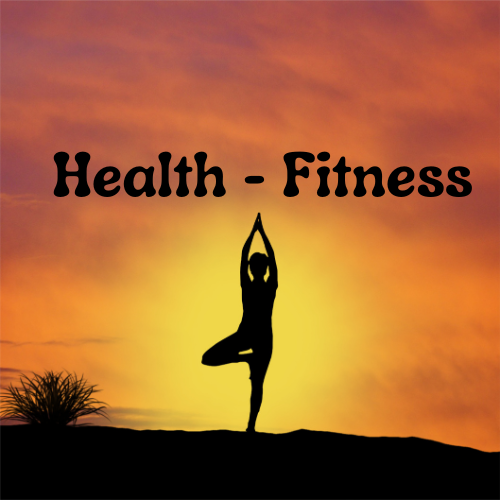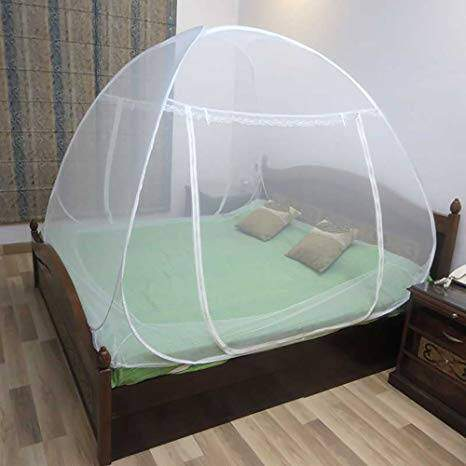New goals to better one's life, such as adopting a healthier lifestyle, are often made at the beginning of a new decade. Here are some useful health advice that will help you get started living a healthy lifestyle.
1. Adopt a good diet
Consume a variety of foods, including whole grains, legumes, nuts, fruit, and vegetables. Adults need to consume five pieces (400g) or more of fruit and vegetables per day. By always incorporating vegetables in your meals, snacking on fresh fruit and vegetables, eating a variety of fruits and vegetables, and eating fruits and vegetables when they are in season, you can increase your consumption of fruits and vegetables. You can lower your chance of developing diabetes, heart disease, cancer, and other noncommunicable diseases (NCDs) and malnutrition by maintaining a balanced diet.
2. Eat less sugar and salt.
Filipinos have twice the recommended sodium intake, which increases their risk of high blood pressure and, ultimately, heart disease and stroke. Salt is the main source of sodium for most individuals. Limit your daily salt consumption to 5g, or roughly 1 teaspoon. To make this easier, choose low-sodium foods and minimise your use of salt, soy sauce, fish sauce, and other high-sodium condiments when making meals. You should also remove salt from the dinner table and avoid salty snacks.
On the other side, consuming too much sugar raises your risk of developing tooth decay and gaining unhealthful weight. The consumption of free sugars should be minimised in both adults and children.less than 10% of the total amount of calories should be consumed as free sugars. For an adult, this is equal to 12 teaspoons or 50g. Less than 5% of total energy intake is what the WHO advises for additional health advantages. By consuming fewer sugary snacks, candies, and beverages with added sugar, you can lower your daily sugar intake.
3. Limit your diet of bad fats
Less than 30% of your entire calorie consumption should come from fats. By doing this, NCDs and unhealthful weight increase will be reduced. Although there are many different kinds of fats, unsaturated fats are preferred to trans- and saturated fats. The World Health Organization advises cutting down on saturated fats to less than 10% of total calorie intake, cutting back on trans fats to fewer than 1% of total energy intake, and switching to unsaturated fats to replace both saturated and trans fats.
The healthier unsaturated fats can be found in foods like fish, avocados, and nuts as well as sunflower, soybean, canola, and olive oils. Saturated fats can be found in foods like fatty meat, butter, palm and coconut oil, cream, cheese, ghee, and lard. Trans-fats can be found in baked and fried foods as well as pre-packaged snacks. things including frozen pizza, cookies, biscuits, and spreads and cooking oils.
4. Avoid to drinking alcohol.
There is no safe amount of alcohol consumption. Alcohol consumption can cause serious health issues like mental and behavioural disorders, including alcoholism, significant NCDs such liver cirrhosis, some malignancies, and heart diseases, as well as injuries brought on by violence and traffic accidents.
5. Quit smoking.
NCDs such heart disease, stroke, and lung disease are brought on by cigarette usage. Nonsmokers who are exposed to secondhand smoke from smokers also die from tobacco use. Around 15.9 million adult Filipinos consume tobacco today, although 7 out of 10 smokers are either interested in quitting or have plans to do so.
It's not too late to stop smoking if you currently do so. When you do, your immediate and long-term health will improve. It's not too late to stop smoking if you currently do so. Once you do, your health will improve both now and in the future. It's excellent that you don't smoke! Don't start smoking and protect your freedom to breathe air free of cigarette smoke.
6. Continuous Get active
The term "physical activity" refers to any skeletal muscle-driven movement that involves the use of energy. This encompasses physical activity and activities done while working, playing, doing duties around the house, travelling, and having fun. Depending on your age group, you may require more or less exercise, but individuals between the ages of 18 and 64 should engage in at least 150 minutes per week of moderate-intensity exercise. For added health advantages, increase moderate-intensity exercise to 300 minutes per week.
7. Regularly check your blood pressure
High blood pressure, often known as hypertension, is dubbed a "silent killer." This is due to the fact that many people with hypertension could not be aware of the issue since it might not show any symptoms. Uncontrolled hypertension can cause illnesses of the heart, brain, kidneys, and other organs. So that you are aware of your statistics, have your blood pressure checked frequently by a health professional. Consult a health professional for help if your blood pressure is high. This is crucial for the management and prevention of hypertension.
8. Take a test
Knowing your health status, especially with regard to HIV, hepatitis B, sexually transmitted diseases (STIs), and tuberculosis, requires getting tested (TB). These illnesses can cause major consequences and even death if left untreated. Knowing your status allows you to take appropriate action to either continue preventing these diseases or, if you find out you are positive, to receive the necessary care and treatment. Wherever you feel most at ease, visit a public or private health centre to get examined.
9. Sex should be safe.
For the sake of your general health and wellbeing, it's crucial to take care of your sexual health. To avoid contracting HIV and other STDs like gonorrhoea and syphilis, practise safe sex. Pre-exposure prophylaxis (PrEP), which protects against HIV, and condoms, which protect against HIV and other STIs are both preventive strategies that are readily available.
10. When you sneeze or cough, cover your mouth.
The air can spread illnesses like the flu, pneumonia, and tuberculosis. Infectious agents can spread to others through airborne droplets when a sick person coughs or sneezes. Make sure you have covered your mouth with a face mask or used a tissue before disposing of it gently when you start to cough or sneeze. When you cough or sneeze without a tissue nearby, try to cover as much of your mouth with the crook (or inside) of your elbow.
11. Keep mosquito bites at home.
One of the deadliest critters in the world is the mosquito. Mosquito-transmitted illnesses like dengue, chikungunya, malaria, and lymphatic filariasis continue to plague Filipinos. Simple precautions can be taken to safeguard you and your loved ones from illnesses spread by mosquitoes. Ask your doctor if you need to get vaccinated against diseases like Japanese encephalitis and yellow fever, or if you need to take antimalarial medications if you're going to a place where there are known mosquito-borne illnesses. Use bug repellent and dress in light-colored, long-sleeved shirts and slacks. Use window and door screens, bed nets, and weekly housecleaning to eliminate mosquito breeding grounds at home.
12. Respect traffic rules
Over a million people worldwide are killed and millions more are injured in traffic accidents. Through a number of policies put in place by the government, including strict regulation and enforcement, safer infrastructure and vehicle standards, and enhanced post-crash care, road traffic injuries can be avoided. By abiding by traffic laws, such as using a seatbelt for adults and a child restraint for your children, wearing a helmet when riding a motorcycle or bicycle, not drinking and driving, and avoiding using a cell phone while driving, you can also help to reduce traffic accidents.
13. only ingest clean water
Water-borne illnesses like cholera, diarrhoea, hepatitis A, typhoid, and polio can spread through the consumption of contaminated water. At least 2 billion people throughout the world consume water that has been tainted with faeces. To make sure the water you're drinking is safe, check with your water concessionaire and water refilling station. Boil your water for at least one minute if you are unsure about your water source. By doing this, hazardous aquatic species will be eliminated. Let it naturally cool before consuming.
14. Breastfeed infants until they are at least two years old.
The greatest way to provide babies and infants the right diet is to breastfeed them. Within an hour of giving birth, moms should start nursing, according to WHO. For a baby to grow up healthy, breastfeeding is essential for the first six months. It is advised to continue nursing for up to two years and beyond. Breastfeeding is healthy for kids, but it's also good for moms since it lowers the risk of postpartum depression, type II diabetes, and breast and ovarian cancer.
15. If you're feeling sad, talk to someone you can trust.
Over 260 million individuals around the world suffer from depression, making it a widespread disorder. Depression can show up in many different ways, but it often leaves you feeling worthless or hopeless, thinking a lot of unfavourable thoughts, or experiencing excruciating pain. Please keep in mind that you are not alone if you are going through this. Discuss your feelings with a trusted person, such as a member of your family, a friend, a work colleague, or a mental health professional. Call the National Center for Mental Health hotline at 0917-899-USAP if you think you might hurt yourself (8727).
16. Only use antibiotics as directed.
One of the major concerns to public health in our generation is antibiotic resistance. Bacterial infections become more difficult to treat when antibiotic effectiveness declines, which raises healthcare expenditures, lengthens hospital stays, and increases mortality. Due to abuse and excessive use in both people and animals, antibiotics are losing their effectiveness. Make sure to only take antibiotics on a doctor's prescription if necessary. Additionally, follow the suggested treatment schedule. Don't ever give out antibiotics.
17. Wash your hands thoroughly
Everyone should practise good hand hygiene, not only healthcare professionals. The spread of contagious diseases can be stopped by using clean hands. When your hands are obviously dirty, you should wash them by hand with soap and water or use an alcohol-based hand scrub.
18. Make your food properly.
More than 200 ailments, ranging from cancer to diarrhoea, are brought on by contaminated food that contains dangerous bacteria, viruses, parasites, or chemical chemicals. To make sure the food you're buying at the market or supermarket is safe to consume, look at the labels or the real produce. Follow the Five Keys to Safer Food if you are preparing food: Maintaining cleanliness, separating raw from cooked food, thorough cooking, maintaining food at acceptable temperatures, and 5) Make use of clean raw resources.




































No comments:
Post a Comment